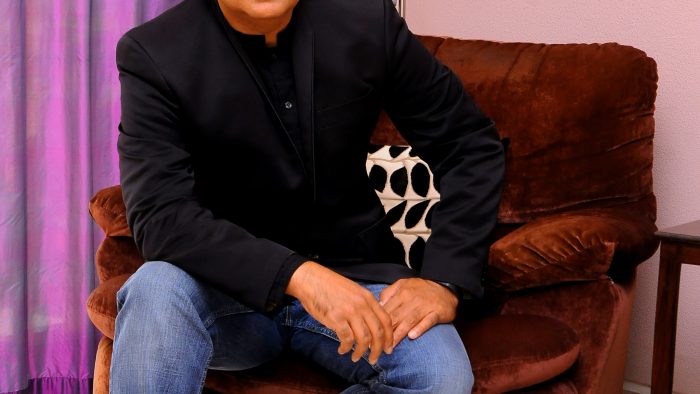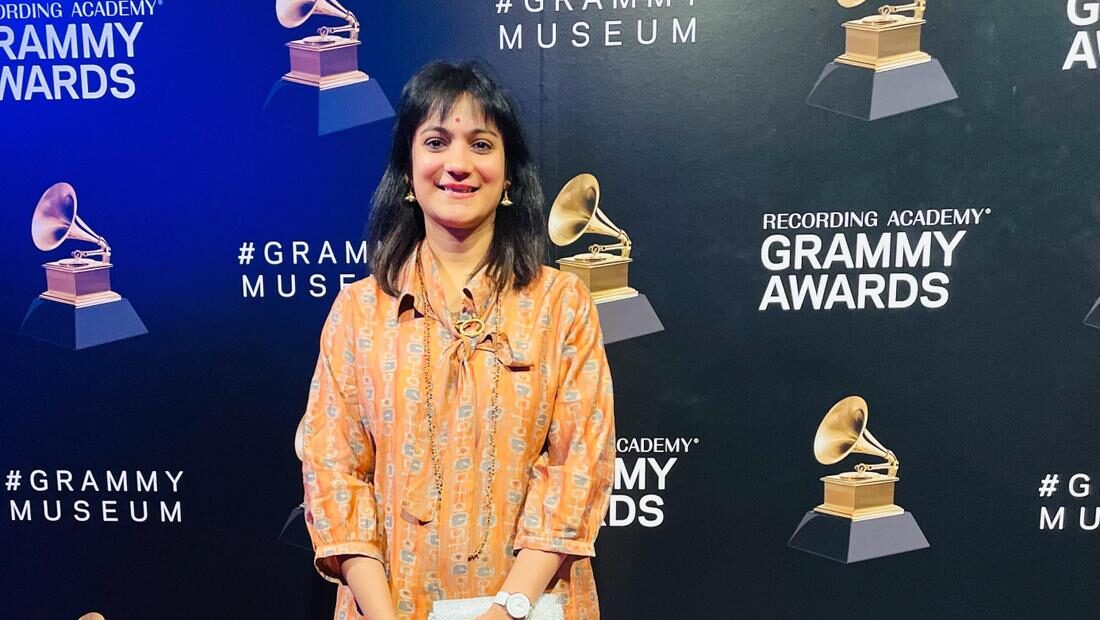
"Brands are meant to enable lives positively. Not by deceit. Not by subterfuge. And most certainly not by clever lines that hide more than reveal" - Harish Bijoor
When Harish Bijoor, Brand-strategy specialist was asked by me a few years earlier if Indian Classical Music needed branding, he replied, “A quick answer on this one. Yes. A big yes. Yes, yes, yes, said three times over and underlined even. Who doesn’t need branding really?”
By extension, everyone would benefit with a little branding. But as Harish says, “Branding a complex amalgam of people, mindsets, and cultures that a country represents is far more difficult than branding an individual.”
Harish Bijoor is CSP’s Bangalore’s Global Icon
# 10, our go-to man perhaps for strategizing India’s soft power. A Brand-thinker
and practitioner operating out of Bengaluru, Harish runs a unique boutique-consulting
outfit branded ‘Harish Bijoor Consults Inc.’, a brand name that has a
consulting presence across the markets of Hong Kong, Seattle, London, Istanbul,
Dubai and the Indian sub-continent.
Harish
has spent his career across the aggressive realms of FMCG, Telecom and Consumer
Durables. Ever ahead of the consumer thinking curve, Harish has spoken to
corporate audiences across the world for 10419 hours to date (MICA website).
Harish
teaches at the Indian School of Business, Hyderabad & Mohali, in addition
to semesters at overseas Business schools in the US and Europe. He has been
teaching at the Indian School of Business for the past 15 years.
Intrigued by his book titled, ‘Brand Irrationals: a fundamental journey into brand-think’, I asked him about his thoughts on branding. “My definition of a brand is a simple one. The brand is a thought. A thought that lives in people's mind. A simple thought that gets planted (either by intent or accident) in the mind of a person. This thought then has the ability to germinate and flourish in a person’s mind. It equally has the ability to decay and get relegated to the farthest recesses of the mind. Brands that invest in keeping their “thought” alive, peppy, contemporary, relevant to the generation, original in impact and innovative in their offerings tend to thrive and do well. Those that don’t die and get pushed into the outer-most periphery of near-oblivion in the person’s mind. And remember, this is a “person” and not a “consumer” I am talking about. Brands live in people’s minds. And these people are not necessarily consumers or fans, as yet.”
World
over Soft Power has been concentrated in some core cities – New York, London,
Paris and even perhaps Mumbai. It is telling that a major city like New York
finds the need to spend billions on branding. In the 1970s New York had a
reputation for a being a hard city, with scary edges. Brand managers were roped
in, and branding budgets raised from $400,000 to $4.3 million and New
York was transformed. Ad agency Wolff Olins asked: “There’s only one New York City, but within it
are five boroughs, approximately 191 neighbourhoods, nearly a million buildings
and over 8.2 million people. How could a brand successfully represent this
diversity?”

The answer was a brilliantly successful logo designed by Milton Glaser. His “I ❤ NY” logo is possibly one of the most iconic logos ever, which represented everything the city stood for, for everyone who loved it.
So if one
had to brand Bangalore as a city – one can only turn to Harish Bijoor. “Bengaluru
is a thought. A thought that lives in people's minds. These people may live in
Bengaluru, live outside it in India or live as a diaspora of citizens outside,
or live as citizens of other countries. Bengaluru the brand lives in each of
these myriad sets of minds. And each has a different thought of Bengaluru. Brand
Bengaluru is a collective amalgam of these thoughts. When we talk Brand
Bangalore, we talk of this collective understanding of the city brand Bengaluru.”
What do
people think of Bangalore? How can we brand it better? Make people come back
again and again to it. Leave it with memories of a lifetime?
“I do
believe we can brand Bengaluru better by an effort that is rich in experience.
Rich in the collective experience of all our sets of consumers. To do that, we
need to make a bottom-up effort and not a top-down one. A top-down effort would
typically be an advertising effort that showcases Bengaluru and a bottom-up
effort in contrast is one that offers real-time good experiences to people. I
believe in the latter. Bottom-up Bengaluru is a preference anytime as opposed
to Top-down Bengaluru,” says Harish.
“Bengaluru is a peaceful city. Foreigners love that. We offer the best of the tradition and technology. We are at the cutting edge of both. For the foreigner, we care able to offer a cultural experience during the day and a nightlife experience that is not far from what he or she or they are used to in their own country. The city is a young city, and that in itself is an attraction.
With the
Internet of Things, perceptions are created both offline and online. “Bengaluru
is therefore an experience we need to create. This experience needs to be both
a physical and a virtual experience. The physical experience will be felt by
those who live in it and visit it frequently and infrequently. The virtual
experience will be ones that will travel as tales from those who visit and
those who experience the brand physically. We can brand Bengaluru better by
enriching the first hand experiences of our peoples. These experiences will
cover the terrains of the political, the social, the economic, the religious,
the cultural, the ecological and the touristy as well. Brand Bengaluru is an
experience. We need to deepen and widen this experience. We need to enrich it.
We need to make it socially inclusive and politically correct as an experience
as well. This is a project in itself. A project no one wants to handle for
now.” Let’s not forget the New York story. It can be rewritten.
Yes,
there are things that need to be changed. But what are the things that
Bangalore has going for it that attracts foreigners? “Bengaluru is a peaceful
city. Foreigners love that. We offer the best of the tradition and technology.
We are at the cutting edge of both. For the foreigner, we care able to offer a
cultural experience during the day and a nightlife experience that is not far
from what he or she or they are used to in their own country. The city is a
young city, and that in itself is an attraction. We offer 27 different
cuisines in the city and are non-jingoistic by and large. The Kannadiga is a
secular entity who embraces one and all, never mind where you come from. We do
not frown at dressing styles and are comfortable with skirts of any
length, from the South Indian 'Pavada' to the Korean mini-skirt. By and large,
Bengaluru is the microcosm of the world at large. And we speak English better than
a whole lot of countries can carry it off. These are big attractions for sure,”
says Harish.
One can’t
help but ask the brilliant ad man, what would he choose as a slogan for
Bangalore. “My slogan would be: "Bengaluru: Bisi, Bisi Bisibelebaath
Bengaluru!" ("Bengaluru: Hot, Hot Bisibelebaath Bengaluru). Bisibelebaath,
to the uninitiated is the South Indian 'khichdi'. Tastier and more varied than
the North Indian variant for sure. It has ingredients that come close to the
'Sambar-rice' combination. A wholesome meal in itself. It packs all of 23
ingredients. All varied. Everything that comes from all over.”
And that
ties in with the cities cosmopolitan outlook. “And that is why I call Bengaluru
a bisibelebaath city. We have people
from every Indian city, from major cities of the world, and all of us cause for
an eclectic city called Bengaluru. And we survive and thrive. And how! Therefore
my slogan: "Bengaluru: Bisi, Bisi Bisibelebaath Bengaluru"! We are a
piping hot city for sure!
Harish has spoken about the ‘The Enabling Lives Dictum’ where he says brands are meant to enrich the lives of people. “Brands are meant to be solutions. Real solutions to real problems. The moment your brand is moving away from this dictum, it is time to re-orient your brand strategy. If your business owner is however inclined to go his way, time to call your friendly headhunter and re-orient your job-strategy instead. Brands are meant to enable lives positively. Not by deceit. Not by subterfuge. And most certainly not by clever lines that hide more than reveal.”





